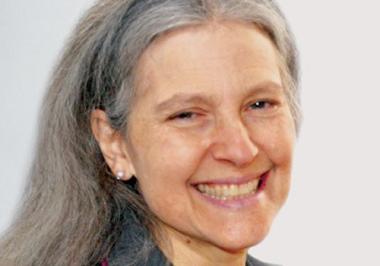The old stereotype has hardly changed. It wasn’t three white men in front of the microphones during the gubernatorial debate at WRKO in Boston last week. It was two white men, Tim Cahill and Charlie Baker, and one black man—Gov. Deval Patrick—in the debate from which Green-Rainbow candidate Jill Stein was conspicuously excluded.
How much of a change is that, really?
As Stein complained later, though the speakers sparred over which was the more adept at cost-cutting, the three of them agreed about everything worth disagreeing about. They agreed that the state needs casinos. They agreed that the state needs to fire more workers. They agreed, as Stein said afterward in a press statement, “that the solution to health care costs is to cut services and narrow choices for consumers. Single-payer health care—the solution that is currently working in many developed countries around the world, and for which I have been a longstanding proponent—was not mentioned once.”
The conventional wisdom was that Stein was not invited to participate in the debate because she is considered so unlikely to win that it would have been a waste of viewers’ time to give her a mic. But there may have been a less obvious agenda. Stein has run for governor before, and won widespread acclaim in the press for her performance in the debates that have included her. She got 20 percent of the vote when she ran for Secretary of State in 2006. She is seen by some Democrats in high places in the state as a spoiler who would upstage Democrat Patrick as a progressive and take votes away from him.
True, her polling numbers are small, but they more than doubled between February, when she announced her candidacy, and late May. That change only brought her from 3 to 8, but it was by far the largest percentage increase realized by any candidate, including Patrick. Supporters point out that Cahill’s number at the time of the debate was only 14. Stein’s 8 points are even more significant, they add, considering that only 40 percent of those polled had heard of her.
In any case, to deny Stein a place in the debate is to reinforce a self-fulfilling prophecy. She won’t win, therefore she can’t debate; she can’t debate, therefore she can’t get exposure, and the prediction of the debate organizers (including former House Speaker and Democratic Party boss Tom Finneran, who hosted it) comes true. That kind of thinking is what’s robbed the American political landscape of fluidity and held it hostage to an ossified two-party system (in this case, Cahill is running as an Independent, but it’s pretty hard for Finneran et al. to ignore him, since he’s the state treasurer—and, by the way, a former Democrat who left the party partly to avoid a fight against Patrick in the gubernatorial primary).
Accessible political process? Public service? Equal time? Concepts like that fall out of the Democratic machine’s memory like change out of a drunk’s wallet.
It’s not only the talk radio station that marked Stein for invisibility. In an article April 18 announcing Republican Charlie Baker’s triumph over opponent Christy Mihos for the GOP gubernatorial nomination, the Boston Globe noted, “Baker has cleared a major hurdle and is now free to focus on the general election race against Governor Deval Patrick and state Treasurer Timothy P. Cahill, a former Democrat running as an Independent.”
Earth to Globe: this general gubernatorial election is a four-way race. And Stein’s run is not merely quixotic.
Stein’s exclusion from the debate was not only a loss for her. It was a loss for the listeners, too. Stein would have challenged the other participants’ views on health care. She would have forced them to answer questions about casinos, questions like how much casinos would bring in in taxes compared to the amount they would drain by necessitating more law enforcement and social services. She would have interrupted the backslapping about the virtues of Massachusetts’ punitive health care law by raising questions about the costs it imposes on low-income people without guaranteeing them adequate benefits. As Stein said, people listening to the debate were “left with the impression that there are very limited options for dealing with the major crises we face in terms of employment, funding services and providing health care and education to our citizens.”



